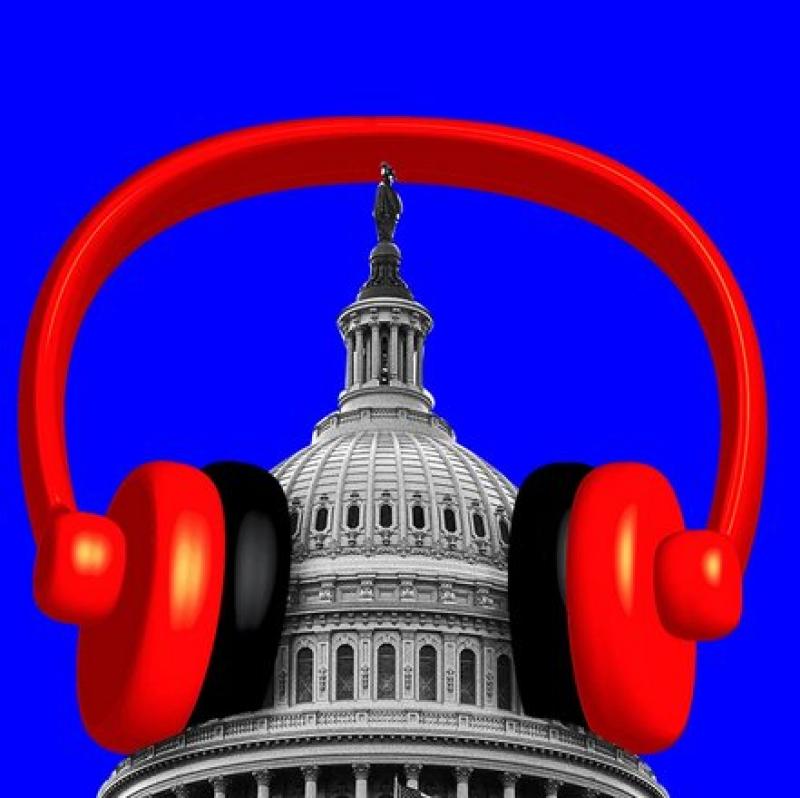Politicians Don’t Actually Care What Voters Want




Illustration by Nicholas Konrad;
photograph by Christopher Lee for The New York Times
But there is reason to question this assumption. It is easy to think of issues, climate change and gun control chief among them, where the consensus of public opinion has provoked little legislative action. How much do legislators really care about the views of their constituents?
Over the past two years, we conducted a study to find out. We provided state legislators in the United States with access to highly detailed public opinion survey data — more detailed than almost all available opinion polls — about their constituents’ attitudes on gun control, infrastructure spending, abortion and many other policy issues. Afterward, we gauged the willingness of representatives to look at the data as well as how the data affected their perceptions of their constituents’ opinions.
What we found should alarm all Americans. An overwhelming majority of legislators were uninterested in learning about their constituents’ views. Perhaps more worrisome, however, was that when the legislators who did view the data were surveyed afterward, they were no better at understanding what their constituents wanted than legislators who had not looked at the data. For most politicians, voters’ views seemed almost irrelevant.
The study worked as follows. First, we took data from the Cooperative Congressional Election Study, an enormous online survey of political attitudes that contains enough participants to allow the data to be informative about the specific political beliefs of constituents within thousands of state legislative districts. Then we hired a design firm to create a visually appealing, easy-to-use website to display constituents’ preferences to legislators. We called the website District Pulse.
We then contacted 2,346 state legislators. At random, we offered about half of them access to District Pulse. We invited the others to view a version of District Pulse that did not offer information about the attitudes of their particular constituents but rather provided information about the attitudes of all Americans, split up into the four broad regions used by the Census Bureau.
By randomizing in this way, we were able to isolate the effects of the district-specific polling information. If some legislators were lazy, for instance, and failed to use the site for that reason, we could be confident that their laziness was not skewing our findings about district-specific polling information, since both groups would be likely to have roughly similar shares of lazy legislators.
We gave each legislator a unique username and password, which allowed us to track exactly who used the site and for how long. Shortly thereafter, we surveyed the legislators who went to the site about their perceptions of their constituents. We then compared the accuracy of those who’d received the district-specific information with those who saw information only about the four census regions. (To unobtrusively measure representatives’ perceptions in the follow-up survey, we asked a colleague of ours to distribute it, with no reference to us or District Pulse.)
When we first did the experiment, in the fall of 2017, only 11 percent of legislators viewed the website to learn about their constituents’ policy preferences. Among those who did, their accuracy in understanding their specific constituents’ preferences was statistically indistinguishable from the accuracy of those legislators who hadn’t seen their constituents’ preferences. In both cases, legislators had little sense of the policies their constituents supported.
To understand how this looked in practice, consider the following. In the average legislative district in our experiment, seven out of 10 constituents support eliminating mandatory minimum sentences for nonviolent drug offenders. But when legislators were asked how many of their constituents they believed supported such a policy, they responded that fewer than two out of 10 constituents did — even if they’d seen their own constituents’ preferences.
Last fall, with national elections looming, we re-sent the polling information and re-administered the survey to legislators who hadn’t used the website previously. This time, we even explicitly reminded a random subset of legislators about the coming election and how polling data would be valuable to their re-election efforts. Yet our results were unchanged: Not many legislators visited the site, and those who did and who saw their district’s preferences were no more accurate for doing so.
No one wants or expects politicians to march in lock step with their voters. Politicians are not supposed to mechanically replace their own views with the views of their constituents. But constituents’ perspectives should carry considerable weight. Our study suggests that for most politicians, voters’ views carry almost no weight at all.
Joshua Kalla is an assistant professor of political science and data science at Yale University. Ethan Porter is an assistant professor of media and public affairs at George Washington University.

*** sigh ***
I will see your sigh and raise you an alas and alack
To add my cynicism to the mix, they are on a constant campaign cycle from the moment they are first elected, where would they possibly find the time for their constituents concerns.
Both sides do it!!
Yup, just a little bit differently but with the same net result.
Well three of us are paying attention.
How many more?
Yes I agree both sides do it but one side never tells me what I want to hear. I know the Dems have no chance of lowering taxes, scaling back regulations and repealing restrictive gun control laws.
We actually needed a study for that ….. Revelation ?
What should have smacked folks in the face …… quite a few times....Left, Right, Up and Down..... was the 2016 election run.
The "Politicians"...… LOST !
Now the "Politicians" are trying to get rid of that winner, and folks are "For It" ? What is this study actually showing us again ?
No the study does not support the contention that politicians do not care about what voters think.
The low participation does not provide valuable information; particularly since the study relies upon non-statistical opinion. Legislatures and political districts are not a statistically random population. The election of a specific politician indicates a bias within the voting population.
Politicians who were shown regional polling data may or may not have more accurately known the views within their district; there isn't any way to know.
Opinion polls include non-voters while the politician has only been elected by voters. The voters who elected a politician are actually the constituency that provides political guidance for the politician. Politicians are more attuned to election results than polling data; voters agreed with the politician's views by electing them.
The study that was conducted is actually nonsensical rather than informative. The study tested the wrong mechanism for politicians understanding the views within their constituency. The pertinent question is whether or not the politician could accurately relate the views of those who voted for the politician.
Well I tried going to the seeded article only to find its a pay site , I don't do those.
Going on just what I can read above , I still have some questions but they are actually irrelevant.
I will take the article as it is directed mainly towards national federal congress critters , IE members of congress in DC.
Any elected congress person has every right to ignore any voter that does not live within the district that voted to send them to congress, so some voter in one state calling and complaining to a congress person of another state carries as much power with that congress person as trying to piss in the ocean trying to hold back the tide from coming in.
For those congress critters that decide to not listen to those that voted them into office in the districts they represent , there are 2 things that can happen, the first and most usual is when they run for re election , they lose , the 2nd option that is less used is they are recalled by the voters of their district and again on a vote removed from office .
Old country barn dance saying , you dance and leave with the one that brung ya . and that applies to all federal state and local politicians.